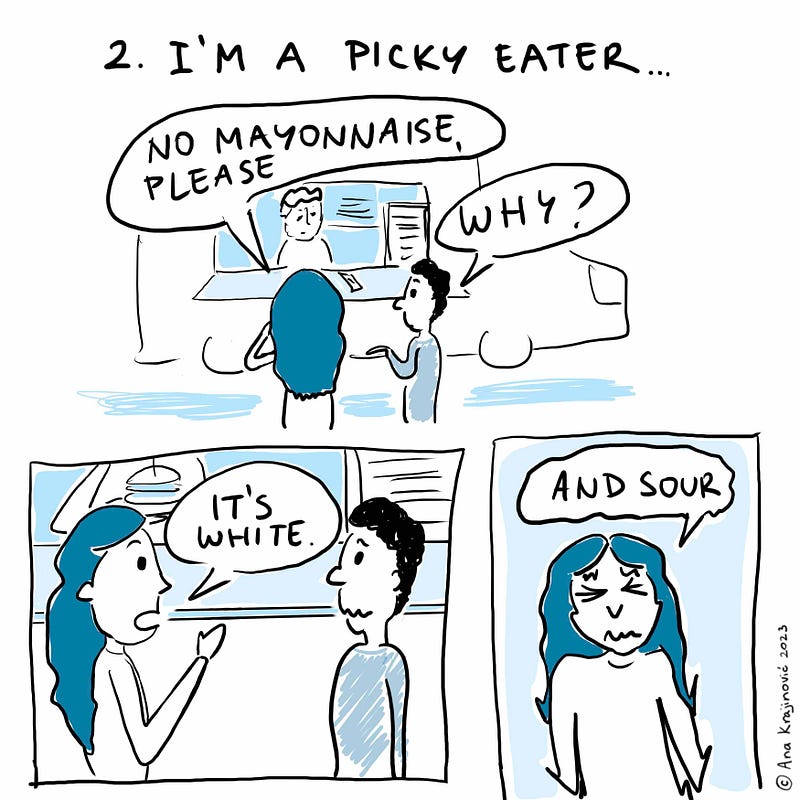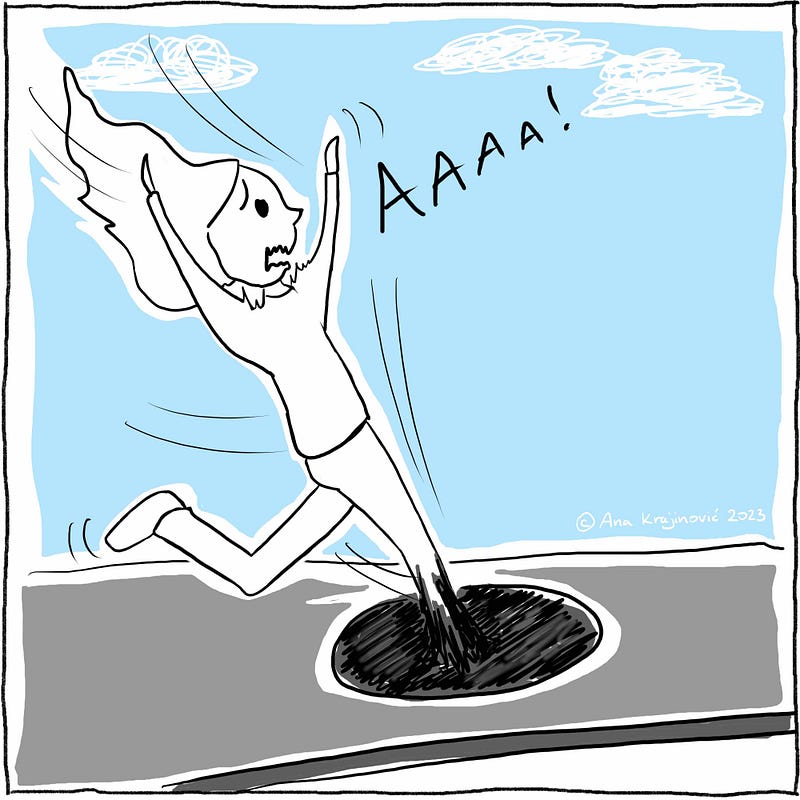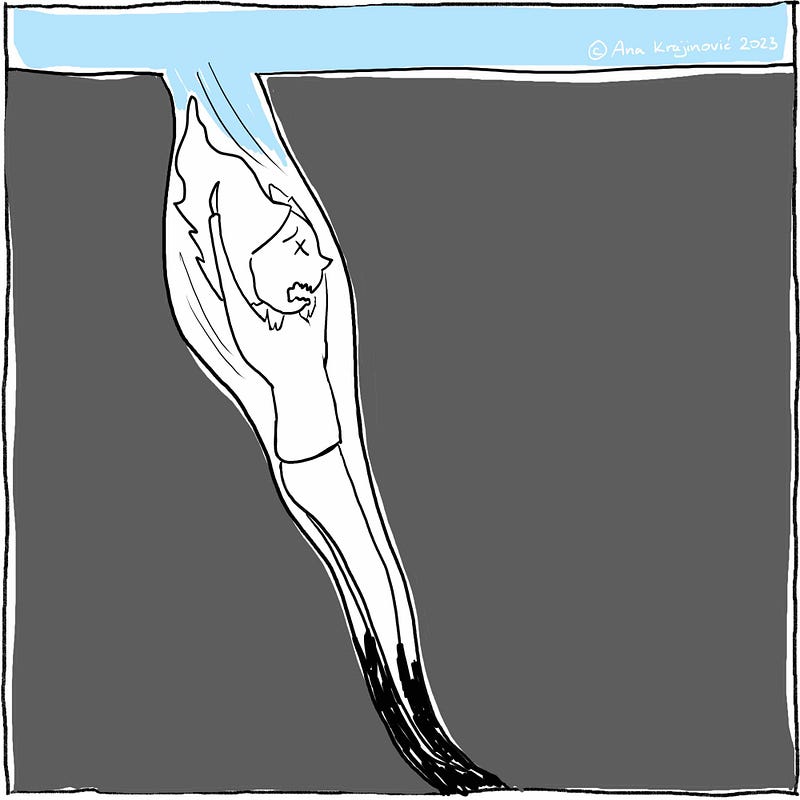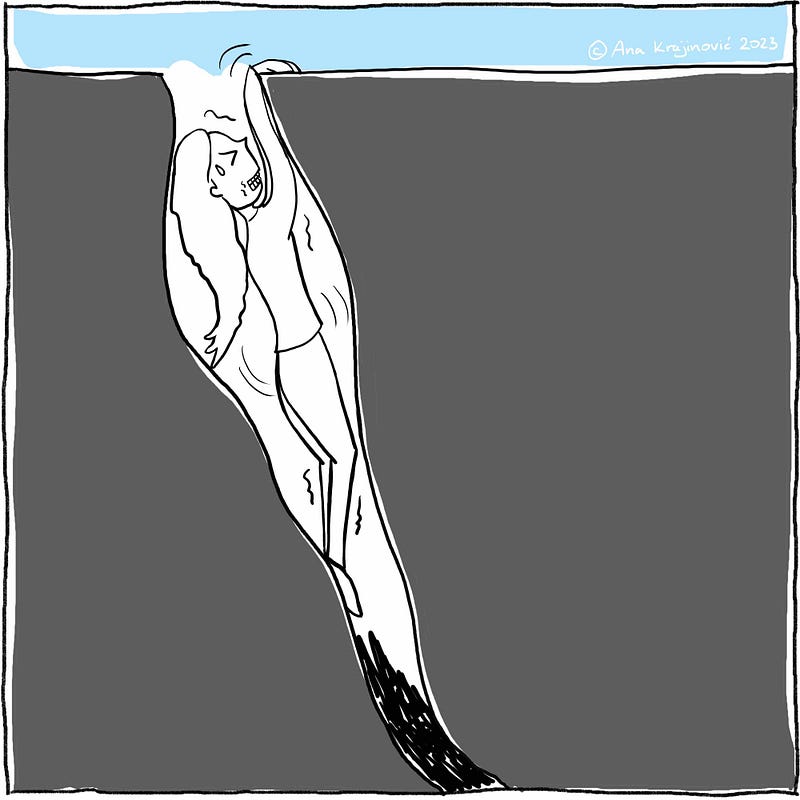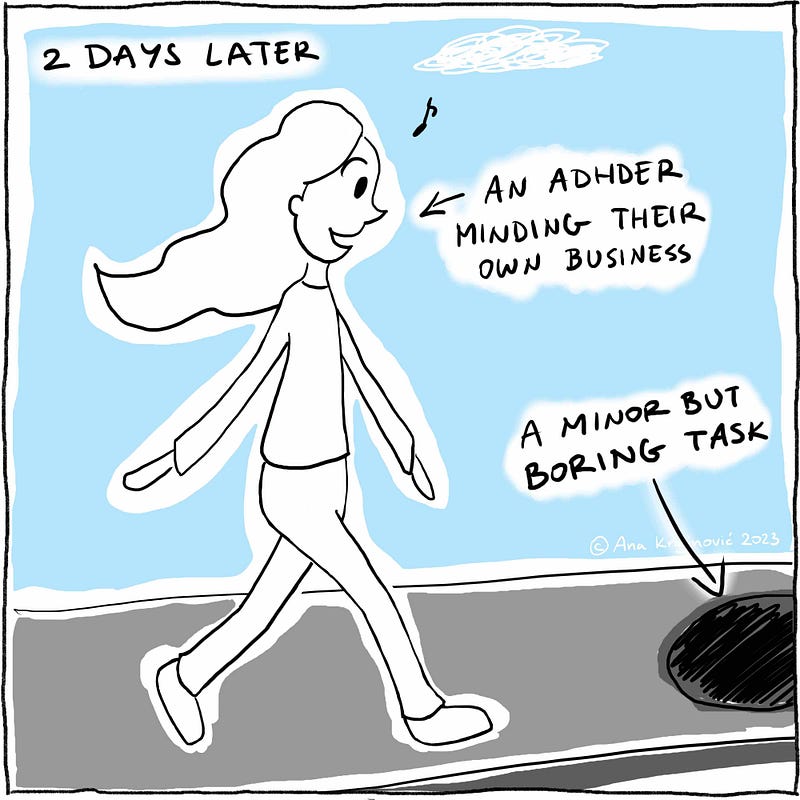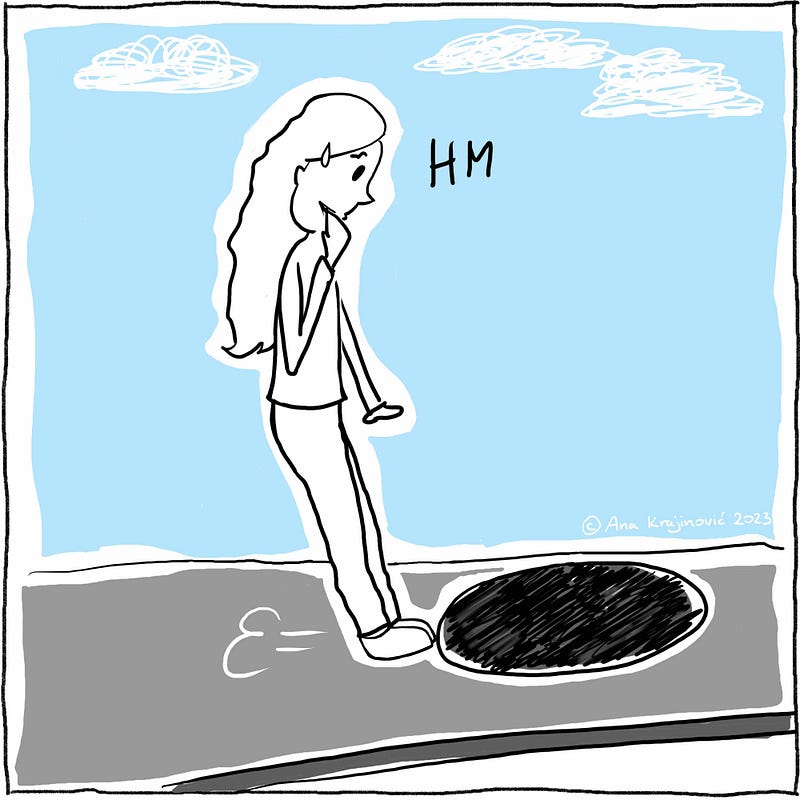Being Neurodivergent Explained in Four Comics
The single factor that explains why I act baby-ish, play with toys, and can occasionally “predict” the end of the world
The single factor that explains why I act baby-ish, play with toys, and can occasionally “predict” the end of the world
Everyone is talking about what it means to be ADHD and neurodivergent these days, but few have identified the funniest, cutest, and simultaneously most unusual aspects of being neurodivergent. So, here they are, in comics!
Why comics?
Listen well, because this might just be the most revolutionary medicine against the negative symptoms of ADHD (Attention Deficit Hyperactivity Disorder) and other mental problems to this date.
Dopamine junky that I am, I create funny comics about my experience with ADHD, and by doing that I satisfy my daily dopamine requirements because
a) I get to be creative,
b) I laugh at myself and feel better,
c) I share my experience with like-minded people, and
d) I get those sweet sweet likes.
So, after you finish reading this post, go and create a comic or a meme about whatever you are struggling with, it will make you feel better, I swear! Check out the links to my posts about comic journaling at the end of this post.
Why neurodivergence?
I am biased here. Since I am neurodivergent and I like talking about myself, we will be talking about neurodivergence (this sounds very logical).
Neurodivergence refers to conditions that make our brains function differently than most people, and this usually comprises ADHD (Attention Deficit Hyperactivity Disorder), autism, as well as OCD (Obsessive-Compulsive Disorder), but it can also refer to other neurodevelopmental conditions. Here I use the term “neurodivergence” to refer to ADHD, autism, and OCD because I have some traits of all three, which inspired me to make these comics in the first place.
This brings me to my disclaimer: This post is about me and it’s not meant to describe a whole population of neurodivergent people. That being said, I do think that many neurodivergent people will relate to my experience (or a subset of it) and that is why I am writing this!
Let’s get into it! Here are four random neurodivergent characteristics explained in comics!
1. Neurodivergent behaviors can appear baby-ish
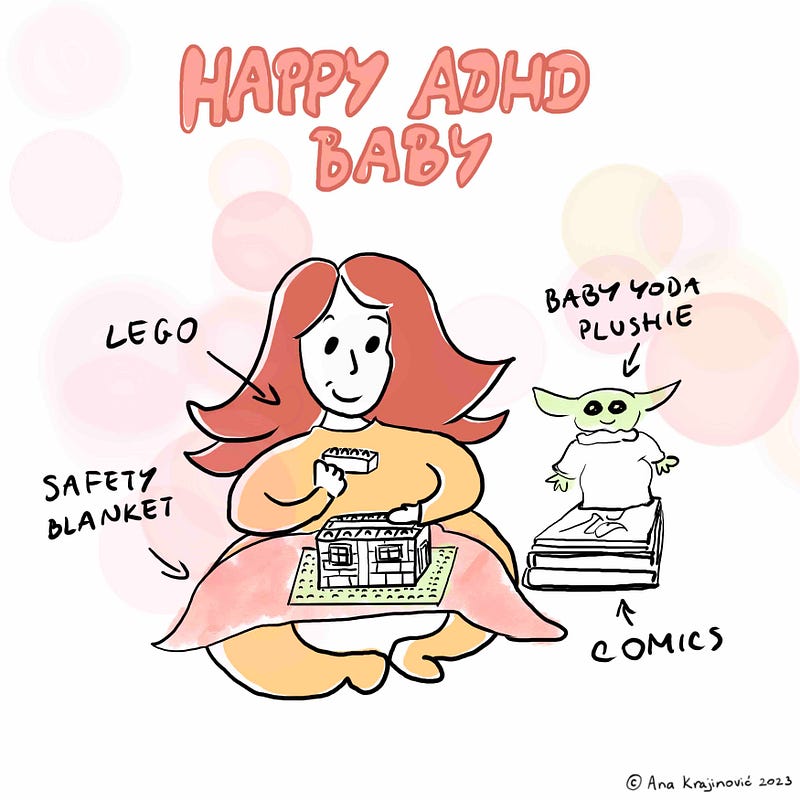
Many neurodivergent conditions, including ADHD in my case, can lead to issues with executive control, aka the ability to control your behavior. So, when I miss my bedtime and I’m really tired, regulating my emotions can be really difficult, and emotional outbursts can come unannounced.
Many of you might wonder why I don’t like mayonnaise for being white. Well, that’s another neurodivergent oddity. We often have sensory sensitivities that can lead to unusual tastes in food. I cannot clearly articulate why I don’t like mayonnaise, but there are many things I don’t like about it: its color, texture, how it’s shiny, its “strong” taste (it’s strong to me!)… I don’t know, my sensory world just gets repelled by this pretty innocuous sauce.
Why do toys and visual stimuli play such a big part in creative stimulation even in adults who are neurodivergent? One obvious answer is that neurodivergent adults maintain many highly specific (usually creative) interests and obsessions, for example collecting toys or following a franchise, like Star Wars. There is something incredibly comforting about coming back to these toys and stories that defined my childhood. But it’s way more than simple nostalgia, these toys allow me to imagine new realities, inspire me to write new stories, and emerge myself in a different reality, which often feels safer and more stimulating than the real world.
I have some upcoming ideas about how visual representations and stimuli (and comics!) help neurodivergent people in overcoming learning difficulties and maintaining attention, so stay tuned for part 2. After all, I am currently working as a comic researcher (and yes, this is a real job in academia! :)).
On the other spectrum leaning more toward “adult” behaviors and desperation, we have our next characteristic:
2. I am hyper-rational
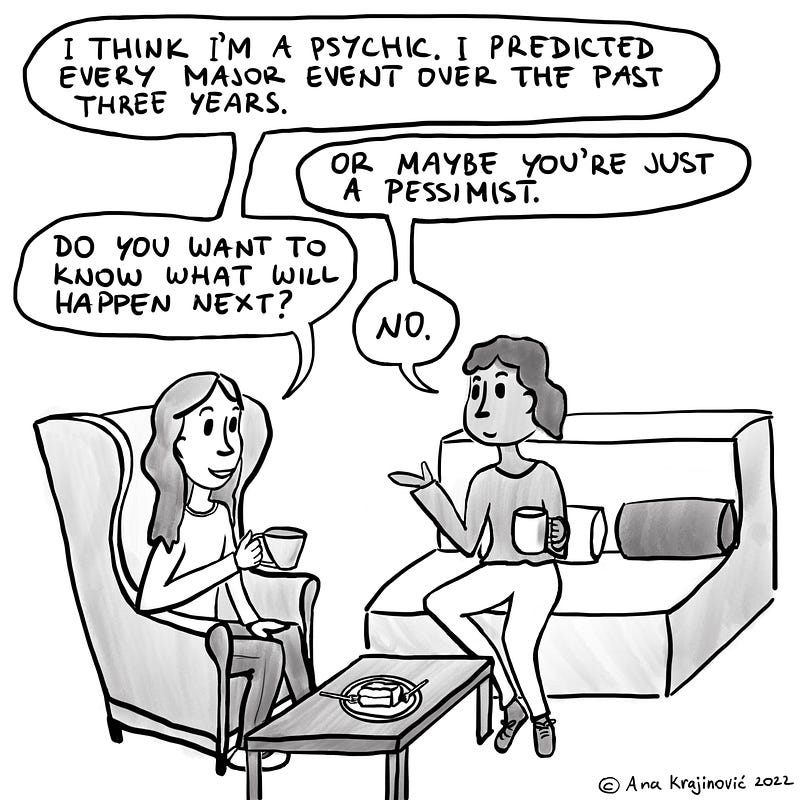
As soon as the lockdown hit in 2020, I made a series of pessimistic predictions, which all came true unfortunately, to the amazement of my friends who kept saying things will get better soon… They didn’t. It took 2 years for that to happen.
Let’s be real. I’m more of a psychic than any of those charlatans that tell people everything is going to be all right. If all those people who claim to be psychic were actually able to predict the future, they would be saying the saddest things you can imagine: “Yes, you will get married, and then your husband will die. You will be sad.” Now that I think about it, this could be used as a test to debunk people claiming to have such powers.
Disclaimer: Due to a rising interesting in hiring me as a psychic medium after publishing this post, I must point out that I’m not an actual psychic because psychics don’t exist. Science, statistics, and probabilities do. I can predict with 100% certainty that you will die and most likely it will be due to a cardiovascular disease, dementia, or cancer. Science!
So, how is this neurodivergent? Well, being hyper-rational and focused on what is more likely to happen, rather than what you would like to happen, is associated with autism. While I don’t have any highly disabling features of autism, I do have several autistic traits, including this one. And I noticed it distinguished me from other people very early on.
While growing up, I came across this statement very often: “I prefer not knowing if [insert a bad situation] is happening.” Most commonly I heard this in the context of not wanting to know if the partner is unfaithful, or if there are wars or violence affecting other people. I could never wrap my head around these kinds of statements! Of course I want to know all these things!
I know what the reality is and, because reality is often harsh, I end up being called a pessimist. Unjustifiably I believe, because I can also predict positive things, for example, I always tell people they can find someone with whom they can spend their lives. There are 8 billion people out there, someone will be the right person, just go out there and meet them!
When I’m not being all cocky and psychic-y, I also try to fit in, just like everyone else:
3. I try to fit in in social situations by imitating others

There is something about this situation that just doesn’t allow me to get all neurodivergent and stay serious, or genuinely ask what others find funny. The social pressure is simply too high and I pretend to be like others, which is called “masking” in neurodivergent social media circles.
I don’t want to offend any of my friends when it comes to joke telling, so here is my explanation of the comic. Me not wanting to laugh doesn’t mean the joke wasn’t funny, it’s just I don’t find it THAT funny to laugh out loud.
However, I do laugh naturally when the joke is about something real that actually happened (hyper-rational much?), especially if it happened to me. And this is an explanation as to why all my comics are based on my autobiographical stories and why I find them funny (I wish they were a bit less true sometimes).
Another sad consequence of ADHD and the distraction that comes with it is that very often I don’t even hear the punchline, let alone process it before people start laughing… This is a very painful thing to admit, as I have been called “slow” whenever I asked the laughing crowd to retell or explain the joke. Maybe that is why I always end up masking.
Enough with the sad, here is a comic that manages to end on a positive note:
4. Boring tasks are impossible to do (even when they are important)

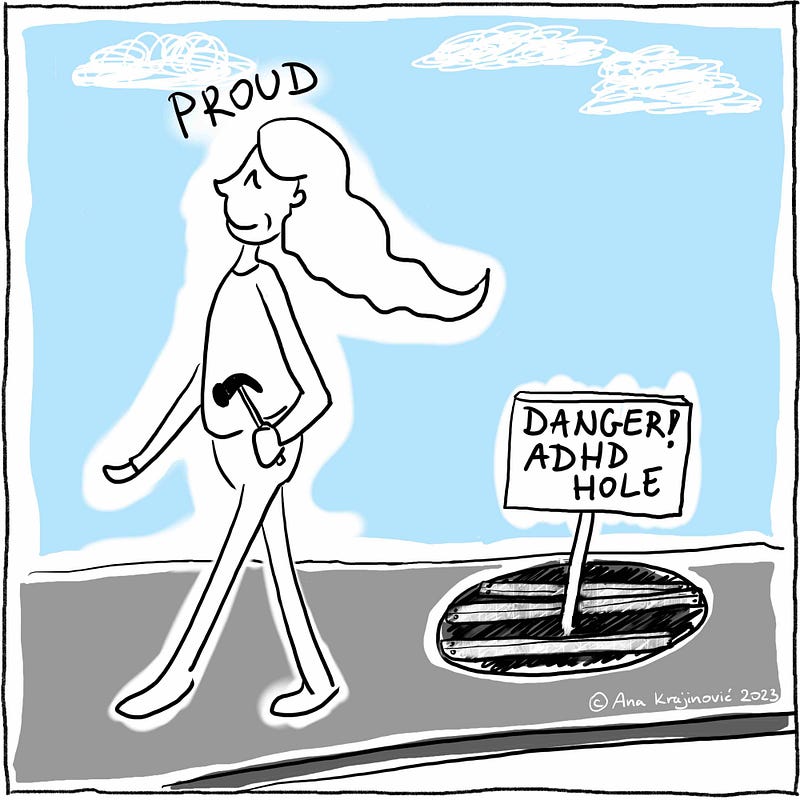
This is probably the most famous ADHD symptom: Complete and utter inability to do anything that you dislike or find even a tiny bit boring. It also doesn’t help that as soon as something is mandatory, it becomes ever so slightly more boring, even if you previously enjoyed doing it. But the worst of the worst for me are household chores and any kind of bureaucracy.
Oh well, the only thing we can do is create awareness around these kinds of tasks, which starts with marking it as a “danger zone”. Once we are aware of our danger zones, we can start concocting a plan. This can include asking for help or creating accountability by body doubling (=another person doing it with you).
And that is it! These are my top 4 neurodivergent characteristics, and many more are coming in future posts.
Do you relate to any of these behaviors? Let me know in the comments!
The end
If you want to see my art and comics as I make them, sign up for my newsletter Ana’s Comics (no account needed to sign up) and follow my comics on Tapas, or Instagram!
If you decide to become a Medium member, you can use this referral link and a portion of your membership fee will support me directly. Thank you!
My posts about ADHD
How Comics Help With My ADHD
With comics included!medium.com
Living With Adult ADHD: Explained In Comics
Chasing a life where everything is exciting and nothing is boringmedium.com
Living With Adult ADHD Is Spooky: Explained in Comics
Muahahaha — 4 spooky things that might happen to ADHDers and other innocent souls this Halloweenmedium.com
Owning ADHD and Coping With It: In Comics
I rarely read books, but when I do, it’s because I want to write one.medium.com
Why Everything Takes Longer When You Have ADHD (In Comics)
Welcome to the world where “crying over spilled milk” is interpreted literally and having fun is the only solutionmedium.com
My comic journaling advice
Dealing With Adult ADHD Through Humor
Learn how to make jokes and draw comics for mental health. This is the written version of my Medium Day talk, video…medium.com
Comic Journaling for Mental Health
Did you know that making comics can make you feel better?medium.com
A Comic Journaling Exercise to Kickstart Your Day
Try this simple journaling technique for mental healthforge.medium.com
Try This Creative Exercise to Pick Yourself up From Low Mood
Expressing and sharing your struggle gives it meaning and shows you that your experience can have an impact on the…medium.com



